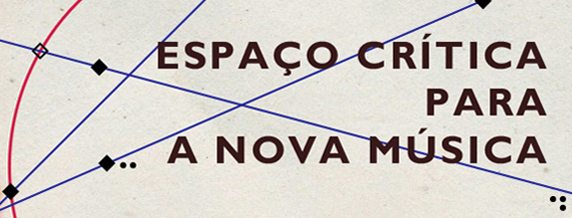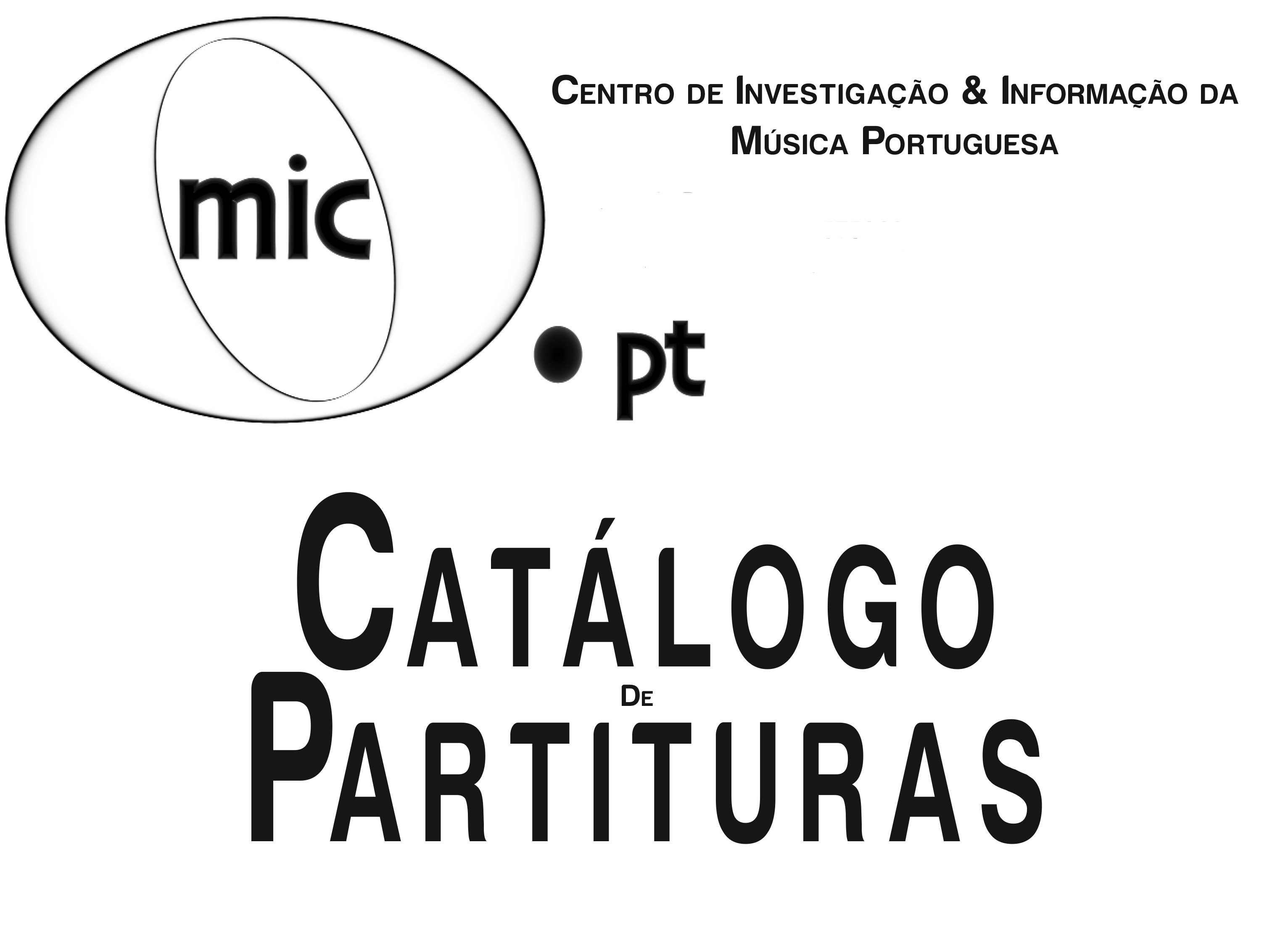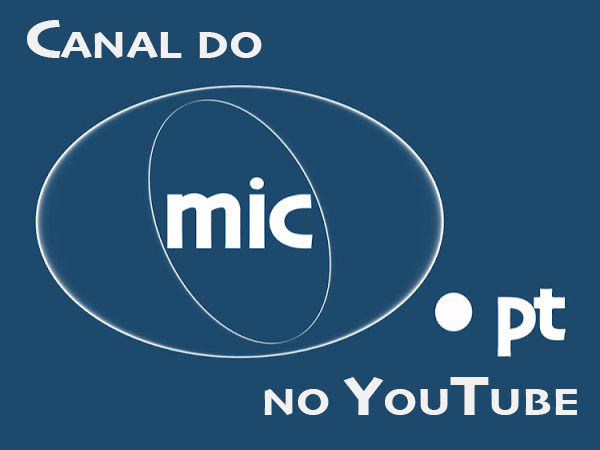Questionnaire / Interview
PART 1 - Roots and Education
How did music begin for you? Where do you identify your musical roots? Which paths led you to composition?
First of all I would like to express my gratitude to the mic.pt for the invitation to this interview.
In my case music began in a quite natural form, since I have grown up in a family, which dedicated itself to various cultural activities. However I should say that my father has always been a quite strong influence in this field. He used to sing to lull me, and we used to sing during our family festivities, therefore, music belonged to our daily routine. After returning from the United States my father offered me a violin and it was then, at the age of five, when I entered the Conservatoire in Ponta Delgada to learn how to play this instrument. Until then I didn’t have any contact with classical music and, in this sense, being able to be in touch with so many types of music, was a constant discovery.
For the most part, my musical roots were acquired at the Conservatoire where I felt that I had all the freedom to explore not only classical music, but also other languages, to which I was exposed by playing at youth orchestras, workshops, seminars, and the repertoire given to me at the instrumental classes, as well as within Analysis and Composition Techniques.
I remember that I have always enjoyed creating. And I remember that once, during a lesson at primary school, the teacher asked us to invent a melody for a given text. It appeared spontaneously… it is obvious that at the time I had no idea what it meant to be a composer, neither that it would become my profession, but I felt an enormous satisfaction for having created music. Further I attended Analysis and Composition Techniques (taught by Ana Paula Andrade) and it was then that it became obvious to me. I was fascinated by every lesson. To listen and to know more about the form, how one “constructs” the sounds, and to get to know various languages, led me quite naturally to be passionate for composition.
Which moments from your musical education proved as the most important to you?
Above all a strong family support. I think that without it I would have never had the freedom and courage to follow music. After that, obviously, studying at the Conservatoire at Ponta Delgada, and as I have already mentioned, attending the lessons of Analysis and Composition Techniques, which provoked a major interest in composition. Later at the Superior School of Music and Performance Arts in Porto, where I developed an exhaustive practice, from instrumental to electronic music, having the opportunity to study with various important contemporary composers such as: Fernando Lapa, Eugénio Amorim, Carlos Guedes, Dimitris Andrikopoulos, Klaas de Vries or Magnus Lindberg. And since I still have a long way to go, currently I continue my composition studies at the University of Birmingham with Jonty Harrison and Michael Zev Gordon.
PART 2 - Influences and Aesthetics | Language and Compositional Practice
Which references do you assume in your compositional practice? Which contemporary and historical works are the most important to you?
There are so many references… and it is quite difficult to make a choice…
Apart from the training and knowledge acquired at the Conservatoire, to some extent I was influenced by the 1960s, 70s and 80s pop / rock, namely by one of my father’s favourite bands – the Beatles. Another reference, which is impossible not to mention: Johann Sebastian Bach, which I always see as a model to follow. Afterwards, obviously, the classics, Wolfgang Amadeus Mozart and Ludwig van Beethoven. There are two works for orchestra that marked me significantly, and I feel them as a strong influences in my music: The Rite of Spring by Igor Stravinsky and Nocturnes by Claude Debussy. Later, such works as Amériques by Edgar Varése, surprised me not only because of the excessive use of percussion but also for the inclusion of unconventional instruments (as, for example, a siren) and their exploration in a symphonic context. It is a work full of surprises and sound experience, and for me that is essential in a narrative. That is how the listener gets involved. I also emphasise Olivier Messiaen and the Turangalila, John Cage, Iannis Xenakis, György Ligeti, Toru Takemitsu, João Pedro Oliveira, and Magnus Lindberg. More recently I have been rediscovering Luciano Berio to the extent that my present interests correspond to some of his works, particularly when using traditional material to compose. This is something that fascinates me at the moment, whilst searching for a personal identity and the influence of Azorean culture in my music.
Could you describe the process behind your compositional practice? Do you write from an embryo idea or after having structured the global form of music?
Normally I begin writing my music from a metaphoric / symbolic idea. The concept is always based on a narrative, which is written before elaborating the sound world, helping me to create the global form and the musical discourse. From there I am more concerned with the gestural feeling (in a personal interpretation of the metaphoric idea), which will be translated afterwards in rhythmical values, the choice of harmonic / melodic structures, as well as timbre and articulations.
Some would say that music, due to its nature, is essentially incapable of expressing anything, neither feeling, nor mental attitude, psychological disposition nor natural phenomenon. If music seems to express something it is only an illusion, a metaphor and not reality. Could you define, in this context, your aesthetic stance?
Undoubtedly, everything is processed in our brains. Physically, sound doesn’t have any emotive or expressive property. A brain is necessary in order to have this cognition or interpretation. Even if it doesn’t exist, human beings have the need to attribute meaning to things, and therefore, they create grammars/organizations of the surrounding elements. We can verify it in different languages, in painting and obviously in music. Yet in the case of music and fine arts it becomes even more complex, since they are quite abstract, being a practice subject to countless interpretations.
My work is far from the concept of absolute music. I am interested in including the symbolic side, the affects and the composition of a narrative based on life.
Are there any extra-musical sources, which in a significant manner influence your work?
As I have already mentioned my music reflects the experience of life and this can come from a personal experience, in form of mythology or in poetry. Yet I am also considerably inspired by nature, perhaps because I was born and lived for a quite amount of time on an island with a marvellous landscape. Currently I am working on sacred and profane songs from the Azores, whose subject include both sacred rituals of the dead, as well as everyday work songs.
What is your relation with new technologies and how do they influence your way of composing, as well as your musical language?
I don’t depend exclusively on technology, but it has been a great tool for the production of systematic results, which in another way would be much more burdensome to obtain. It also helps me to explore possible new results concerning the form, harmonic and rhythmic structures; analysis of the sound spectrum and its manipulation in search of different sonorities, which can be interesting to apply, for example in orchestration.
PART 3 - Present and Future
What are your current and future projects? Could you highlight one of your more recent works, present the context of its creation as well as the particularities of the language and the techniques used?
At the moment I dedicate myself to composing various works, which will become part of my doctoral project. All of these pieces have as a base the use of traditional Azorean songs, and equally some recordings of viola da terra with the intention to explore its sonority and technique. The most recent piece on which I have been working is for Clarinet in Bb and electronics, composed at the request of the clarinettist Victor Pereira. This piece deals with a relatively big narrative (around 18 minutes) where I explore the use of original sources in a symbolic way, helping me to project the narrative. The original source in question is a recording of a ritual celebrated around November (month of the cult of souls) on several islands of the archipelago. Yet the practices differ from island to island. Due to its subject it is a quite profound and dramatic piece. I use here various spectral techniques (harmonic recognition, distortion and filtering), both in the electronics as well as in the instrument. Additionally, the analysis of intensities of the recorded voices enables me to collect and manipulate this information to generate rhythms algorithmically. Through auditory analysis I also try to recreate for the clarinet, the peculiar characteristics of singing and the Azorean accent, with the intention to find a musical discourse on its own.
How do you see the future of art music or music of invention?
It is always difficult to answer this question… but in fact, at this moment where art has less and less financial support it always arises with more strength, either by the form of protest or by education (where there have been more and more active consciousness in this field). Therefore, there will be always a motivation for the practice of art in various fields. There has been even research about the integration of art within companies in order to improve life quality. In my opinion, art is and will always be a human necessity, obviously, always adapted to technology of a given period, nevertheless I see its evolution very positively.
Ângela da Ponte, February 2014
© mic.pt
ÂNGELA DA PONTE's OFFICIAL WEBSITE: adaponte.wordpress.com





